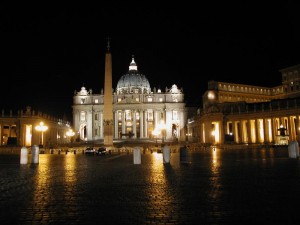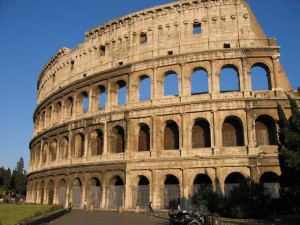When the predicted earthquake didn’t hit Rome on May 11, what did you make of that?

Reuters circulated a story about the prediction of the late seismologist Raffaele Bendandi; it is said that he predicted a devastating earthquake would hit Rome on May 11, 2011. In fairness to Bendandi, who died in 1979, it is not clear that he made the prediction.
Evidently others may have embellished.

In any event, Rome had fewer tourists than normal that day.
The whole affair made me think that had I known in time, I would have planned for a Roman holiday (warning: bad joke in your rear-view mirror). I do not put much stock in the predictions of humans, but the predictions of God are another matter.
For example, the Rome earthquake prediction will go the way of typical human prophecies. Yet the predictive prophecy found in the Bible is breathtaking in its detailed fulfillment.

Take the strange case of Tyre. Mentioned in Ezekiel 26, the description is that the fortress at Tyre (off the coast of modern Lebanon) would one day be demolished. It is even said that it will be just bare rock, where fishermen will spread their nets.
Ezekiel lived in the sixth century B.C. Tyre was indeed demolished a few hundred years later in 332 B.C., when Alexander the Great and his Macedonian army built a causeway to the fortress and destroyed it.
I’ve seen photos of Lebanese fishermen drying their nets exactly as Exeziel said.
Some scholars would say Ezekiel’s prophecy was written after the fact, but the evidence doesn’t fit that scenario. Some people don’t like the idea of a God who can predict the future, so they twist and malign Scripture.
While man’s predictions often fail, God’s never fail. What are we to make of that?
